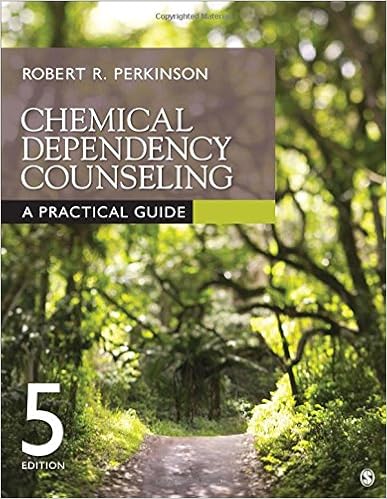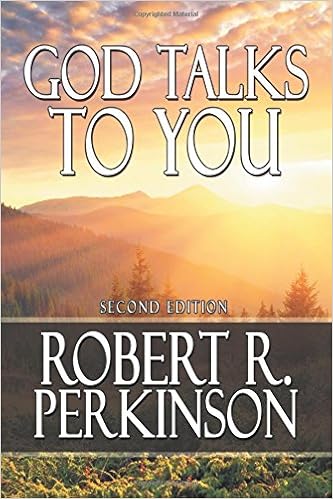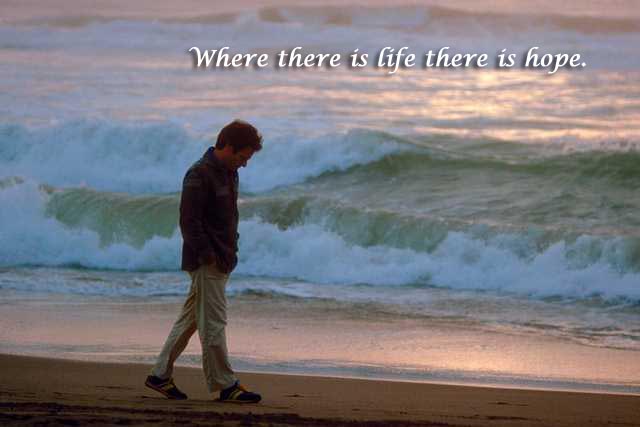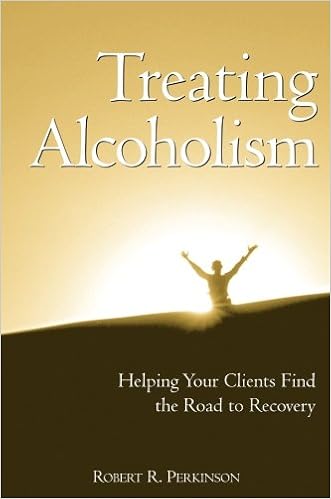Teenage Gambling | Problem Gambling
Jerry, sixteen years old and new to treatment, leaned forward restlessly and said, “I started by betting on sports games. I’m into football see, but soon I was betting on all of the sports, basketball, baseball, soccer, even tennis, you name it. I did pretty well at first. I was making good money, and I said to myself, ‘this is pretty neat.’ I couldn’t wait to get the sports page every day so I could work on the point spread. I guess it all started there. Soon I had a bookie, they’re not hard to find, and then I discovered Internet gambling. Sports betting and scratch tickets pale in comparison to that, it’s instant. I’d be up all night betting and then have problems getting to school. But who needed school. I had all this money I could win without an education. Education was for suckers. Then I started loosing, I mean really loosing. I couldn’t make a good bet, and if I did win, I’d put it right back in. I tried to stop but I kept going back. It was as if the computer owned me. I was at it all day and all night sometimes, trying to make up the losses. I had to steal from my parents to pay back my credit card bills and then I used their credit card numbers, punched them in just like they were my own. Well that did it. I had to steal their credit card bills from the mail so they wouldn’t know what I was doing, but I knew if I didn’t win soon they would know. When the credit card companies started calling the house I was done. I couldn’t always get to the phone first even if I tried. When the truth came out, the family was thousands of dollars in debt. That night I tried to kill myself. I couldn’t stand hurting my parents like that. That’s when I ended up here.”
The story is familiar isn’t it? An innocent game, a lark of adolescence, turns bad and then lethal. Addiction professionals know how this game goes with drugs and alcohol but gambling seems different, a pure behavior--no drug. But from recent research in the neurobiology of addiction we now know that all addiction works through the mesolimbic dopamine system in the brain. This triggers the endogenous opioids that are many times more powerful than morphine. Recent evidence shows that naltrexone blocks the reinforcing properties of alcohol and other substances and it does the same thing for gambling. All of the addictions have a neurobiological basis; so pathological gambling is a chronic relapsing brain disease, like alcoholism. Pathological gambling has all of the hallmarks of addiction including tolerance and withdrawal (Kim, 1998; Wray and Dickerson, 1981.) Further evidence suggesting neurological dopaminergic involvement comes from a study that found nearly 50% of a group of pathological gamblers carried the DRD2 gene receptor variant so common in other addictions and the more severe the gambling problem the more likely the individual was to be a carrier for this receptor variant (Comings, Rosenthal et al, 1996).
This country is in big trouble and we don’t know it. Seventy years ago it was illegal to gamble in America. Gambling was considered immoral by our grandparents. Today you can gamble in all but three states, Hawaii, Utah and Tennessee, and states actually encourage their citizens to gamble. Gambling is big business in America earning the gaming industry 50.9 billion dollars in net revenue annually.
Gambling is very attractive, particularly to people who need money. The Illinois Lottery did a study to see who gambles, and found people who made less than ten thousand dollars a year gamble six times more often than those who earn over fifty thousand dollars a year. People know they can win millions by risking a dollar. A recent program on the Discovery Channel stated that gambling is so attractive, that when the Powerball is high, ninety percent of eligible adults buy a ticket. There is no other commodity where the percentages are this high, and there is no product just a chance of winning. The real odds of winning a state lottery are approximately fourteen million to one, the same odds as being hit by lightning seven times while waiting in the lottery line.
Our parents grew up thinking that gambling was wrong, but our children are growing up with gambling is as easy as going to McDonald's. For the first time in history, gambling is available close to home and now even inside of the home with the Internet. People can walk to and from work and gamble. Teenagers can gamble away their future in their rooms. Governors go on television and encourage their citizens to bet and tell them how much they can win. Gambling is good they say, it’s fun, no one gets hurt, and everybody is doing it. We in the addictions field know that’s what we hear on television about alcohol and substance abuse kills 24% of Americans.
Most people who gamble enjoy gambling as a game; it's exciting and fun. But some citizens are caught up in an addiction as powerful as drug addiction.
Where do our children learn that gambling is safe? To answer that question you have to look into the average American home. In the average American home, the average parent, spends three minutes a day talking to their child. While in the average home, the average child watches television 4-8 hour per day. Our children know that gambling is fun and safe.
If you don’t think teenagers can gamble because it’s illegal, think of alcohol and drug abuse. A recent survey in Vermont of 21,297 high school students found that 53% of the students gambled in the last twelve months and 7% reported significant gambling problems (Proimos 1999). Gambling problems are at least as high in children as they are in adults.
Diagnostic Criteria for Pathological Gambling
According to the American Psychiatric Association's Diagnostic and Statistical Manual oriental Disorders, Fourth Edition, pathological gambling is a persistent and recurrent maladaptive gambling behavior as indicated by five or more of the following criteria:
1. The individual is preoccupied with gambling (i.e. preoccupied with reliving past gambling experiences, handicapping or planning the next venture, or thinking of ways to get money with which to gamble.
2. The individual needs to gamble with increasing amounts of money in order to achieve the desired excitement.
3. The individual has repeated unsuccessful efforts to control, cut back or stop gambling.
4. The individual is restless or irritable with attempting to cut down or stop gambling.
5. The individual gambles as a way of escaping from problems or of relieving a dysphoric mood (i.e., feeling of helplessness, guilty, anxiety, and depression).
6. The individual after losing money gambling often returns another day to get even ("chasing" one's losses).
7. The individual lies to family members, therapist, or others to conceal the extent of involvement with gambling.
8. The individual has committed illegal acts such as forgery, fraud, theft, or embezzlement to finance gambling.
9. The individual has jeopardized or lost a significant relationship, job, education or career opportunity because of gambling.
10. The individual relies on others to provide money or relieve a desperate financial situation caused by gambling.
Pathological gambling is an addiction that can be treated essentially the same way as other addictions--with certain exceptions. To recover, gamblers like all addicts need to get honest with themselves and others, go to recovery group meetings and help other people there, and get on a spiritual journey to God. Gamblers need to understand from the onset of treatment that there is an answer to their financial problems. There is an excellent financial worksheet available from the Gamblers Anonymous general service office that will help you through the financial history, or if the local GA group has a pressure relieve group, they can do it. A financial solution must be presented from the moment a problem gambler comes into treatment. If you don’t do this, they will be out the door. “I know you are worried about the money, but if you stick with the recovery program we will develop a program so you can pay everyone back. You must be responsible for every penny you owe.” Professionals should not encourage a pathological gambler to go bankrupt, that’s called a bail out, and this often triggers more gambling because the gambler thinks they have a clean slate and they can start over.
The drug of choice for gamblers is money and the biological chemicals it creates, so they can’t carry money around for a while. Someone responsible person has to keep the money and give them the exact amount they need each day. You wouldn’t want an alcoholic walking around with a pocket full of whiskey. After the gambler has developed a stable self-directed program of recovery, they can gradually take control of their finances.
So what happened to Jerry? First we got the whole story even though he didn’t want to remember it all, we finally got the last of what he did and what he owes. Gamblers hold out on what they owe, so check carefully. To get the facts you have to create an environment that is so gentle, safe and loving that the patient can search for and share the truth. Then Jerry learned about the disease of addiction. Its genetic and neurobiological not just that he’s bad. He worked through the first five steps of GA, and then he began helping others, showing them the way, restoring meaning and worth to his life. Then Jerry searched for a connection with his higher power. Gamblers have a hard time with this one; too much ego can get in the way. But when you are powerless, things change. Through daily prayer and meditation Jerry sought conscious contact with God and began to get answers from God, finding new direction to his life, and long with that new happiness and peace. This was what he was seeking in gambling. Of course he didn’t want to go to recovery group meetings, he was special and all, but he finally agreed and is going once a day and to aftercare once a week. Jerry also takes 50-100 mg of Naltrexone a day. This cuts the craving and the reinforcing properties of gambling in case he slips.
So generally, gamblers need to do three things to stay away from gambling. They need to get honest with themselves and others, go to GA meetings and help others, and get on a spiritual journey. Many can benefit from the use of Naltrexone. In regard to treatment outcome, fifty percent of gamblers stay clean with treatment alone, seventy percent if they go through treatment and then regularly attend GA, and ninety percent if they go through treatment, go to GA, and attend aftercare. Pretty simple, just like any addiction. Remember, gamblers need a financial payback plan, and they can’t carry money.
National Council on Problem Gambling 10 Questions About Gambling Behavior
1. Have you often gambled longer than you had planned?
2. Have you often gambled until your last dollar was gone?
3. Have thoughts of gambling have caused you to lose sleep?
4. Have you used your income or savings to gamble while letting bills go unpaid?
5. Have you made repeated, unsuccessful attempts to stop gambling?
6. Have you broken the law or considered breaking the law to finance your gambling?
7. Have you borrowed money to finance your gambling?
8. Have you felt depressed or suicidal because of your gambling losses?
9. Have you been remorseful after gambling?
10. Have you gambled to get money to meet your financial obligations?
If you or someone you know answers "Yes" to any of these questions, consider seeking assistance from a professional regarding this gambling behavior.
Find a treatment facility near you
 Chemical Dependency Counseling: A Practical Guide, Fifth Edition: is a best-selling comprehensive guide for counselors and front-line professionals who work with the chemically dependent and addicted in a variety of treatment settings. The text shows the counselor how to use the best evidence-based treatments available, including motivational enhancement, cognitive behavioral therapy, skills training, medication and 12 step facilitation. Guiding the counselor step-by-step through treatment, this volume presents state-of-the-art tools, and forms and tests necessary to deliver outstanding treatment and to meet the highest standards demanded by accrediting bodies.
Chemical Dependency Counseling: A Practical Guide, Fifth Edition: is a best-selling comprehensive guide for counselors and front-line professionals who work with the chemically dependent and addicted in a variety of treatment settings. The text shows the counselor how to use the best evidence-based treatments available, including motivational enhancement, cognitive behavioral therapy, skills training, medication and 12 step facilitation. Guiding the counselor step-by-step through treatment, this volume presents state-of-the-art tools, and forms and tests necessary to deliver outstanding treatment and to meet the highest standards demanded by accrediting bodies.
 The Alcoholism and Drug Abuse Client Workbook, Third Edition:An evidence-based program that uses treatments including motivational enhancement, cognitive-behavioral therapy, skills training, medication, and 12-step facilitation. It provides a venue for clients to write down their thoughts and experiences as they progress through treatment.
The Alcoholism and Drug Abuse Client Workbook, Third Edition:An evidence-based program that uses treatments including motivational enhancement, cognitive-behavioral therapy, skills training, medication, and 12-step facilitation. It provides a venue for clients to write down their thoughts and experiences as they progress through treatment.
 The Gambling Addiction Client Workbook, Third Edition:An evidence-based program that uses treatments including motivational enhancement, cognitive-behavioral therapy, skills training, medication, and 12-step facilitation. This workbook walks clients through self-reflective activities and exercises meant to help them recognize the underlying motivations and causes of their gambling addiction and to learn the tools necessary for recovery. The Third Edition of this workbook includes coverage of all 12 steps of recovery. Chapters focused on honesty and relapse prevention as well as a personal recovery plan contribute to client success.
The Gambling Addiction Client Workbook, Third Edition:An evidence-based program that uses treatments including motivational enhancement, cognitive-behavioral therapy, skills training, medication, and 12-step facilitation. This workbook walks clients through self-reflective activities and exercises meant to help them recognize the underlying motivations and causes of their gambling addiction and to learn the tools necessary for recovery. The Third Edition of this workbook includes coverage of all 12 steps of recovery. Chapters focused on honesty and relapse prevention as well as a personal recovery plan contribute to client success.
Treating Alcoholism: Helping Your Clients Find the Road to Recovery:
Alcoholics are one of the most difficult client groups to treat effectively. To preserve their way of life, they may lie about their problem or deny that one exists; that is the nature of this profoundly powerful disease. Yet if you can guide each of your clients through their own resistance towards the truth, not only will you be rewarded with starting them on the road to recovery, you will no doubt have saved their life as well. Achieving such a victory goes to the heart of being an addiction counselor; it is the experience of healing on a direct and tangible level.
Treating Alcoholism provides a complete road map for assessing, diagnosing, and treating this multifaceted and tenacious illness. Detailed clinical information on the disease accompanies ready-to-use tools for practice. With a special emphasis on the 12 Steps of Alcoholics Anonymous, the author walks you through the first five steps of this established methodology in comprehensive detail, showing how to easily apply each one to treatment.
The Big Book of Alcoholics Anonymous says that only God can relieve the illness of addiction. Here are a few spiritual tools to help you:
 God Talks to You: Second Edition: God wants to communicate with you. God has been calling you for a long time. You have wanted God to speak to you for a long time. You have wanted to talk to God and get answers back. Here are a few quotes from spiritual leaders who have read the book: Reverend Mark Holland: “After reading Dr. Perkinson's book, I spent several minutes quieting myself, and then I asked God if there was a message for me. “Mark I’ve missed you!” Although there were no words spoken, I felt this message very clearly. I was quite surprised. Daily I was involved with spiritual matters, praying, preaching, and counseling. Nevertheless, I discovered that God was lonely for me.” Reverend Dave Waldowski: “This book and tape do not only “discuss” communication with God, moreover if you follow these simple principles you will “experience” and “hear” God’s voice on a daily basis.”
God Talks to You: Second Edition: God wants to communicate with you. God has been calling you for a long time. You have wanted God to speak to you for a long time. You have wanted to talk to God and get answers back. Here are a few quotes from spiritual leaders who have read the book: Reverend Mark Holland: “After reading Dr. Perkinson's book, I spent several minutes quieting myself, and then I asked God if there was a message for me. “Mark I’ve missed you!” Although there were no words spoken, I felt this message very clearly. I was quite surprised. Daily I was involved with spiritual matters, praying, preaching, and counseling. Nevertheless, I discovered that God was lonely for me.” Reverend Dave Waldowski: “This book and tape do not only “discuss” communication with God, moreover if you follow these simple principles you will “experience” and “hear” God’s voice on a daily basis.”
Peace Will Come CD Sit back and let the words and music sink into your soul. Come back often and play the songs over and over again. You won't be sorry. God will teach you many things you need to know.
A Communication From God: A meditation tape that will give you long communications from God. The tape takes you through two exercises where God speaks to you directly.
Trevor Howard, the sheriff of Teton County Wyoming, is contemplating an explosion of cocaine addiction, four structure fires and the murder of a six-year-old boy in his jurisdiction. The boy had a wooden cross penetrating his heart indicating a possible religious connection. Trever has the idea of hiring a young woman deputy with experience in undercover narcotics investigation. Simultaneously, Doctor Abe Anderson, Trevor’s best friend, meets Heather Cutler, acting in a play as the red headed demon of seduction. Abe falls in love with her and even more with his first experience with cocaine. Trevor is usually a confident police officer but these crimes, coming all at once, leave him feeling deeply troubled. Before it’s done his whole life, friendships and family will show him how terribly he has underestimated his greatest fears.
Joan Worthing has a new job as a seasonal ranger in Yellowstone National Park. She is hoping to escape a long history of physical and sexual abuse by her brother Teddy who is schizophrenic. Teddy escapes from a mental hospital and rushes to find her. He believes she must have his child who will save the world from an alien invasion. He is desperate to find Joan and save the world. Doctor Rand Holland, a psychologist in new recovery from alcoholism, becomes involved in the search for Teddy and the protection of Joan. One of Rand’s teenage patients Lela Lander runs away from home seeking help from Rand. She becomes involved with a Satanic coven in Denver run by Lonn Majors. All these characters meet in Yellowstone as the coven holds a Halloween ritual sacrifice that will bring Satan to earth for the ultimate battle between good and evil.
Addiction stops your spiritual progress. Begin a new spiritual journey: www.godtalkstoyou.com
Read the latest research for a school paper or project from the National Library of Medicine





